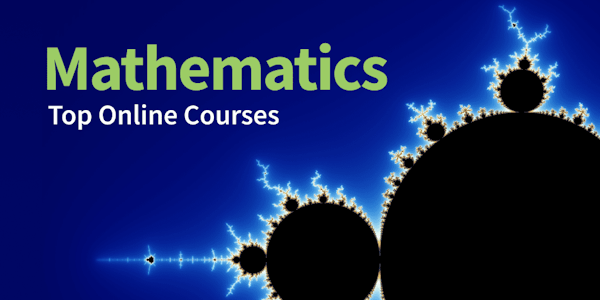This course by Imperial College London is designed to help you develop the skills you need to succeed in your A-level further maths exams.
You will investigate key topic areas to gain a deeper understanding of the skills and techniques that you can apply throughout your A-level study. These skills include:
* Fluency – selecting and applying correct methods to answer with speed and efficiency
* Confidence – critically assessing mathematical methods and investigating ways to apply them
* Problem solving – analysing the ‘unfamiliar’ and identifying which skills and techniques you require to answer questions
* Constructing mathematical argument – using mathematical tools such as diagrams, graphs, logical deduction, mathematical symbols, mathematical language, construct mathematical argument and present precisely to others
* Deep reasoning – analysing and critiquing mathematical techniques, arguments, formulae and proofs to comprehend how they can be applied
Over eight modules, you will be introduced to
* Simple harmonic motion and damped oscillations.
* Impulse and momentum.
* The work done by a constant and a variable force, kinetic and potential energy (both gravitational and elastic) conservation of energy, the work-energy principle, conservative and dissipative forces, power.
* Oblique impact for elastic and inelastic collision in two dimensions.
* The Poisson distribution, its properties, approximation to a binomial distribution and hypothesis testing.
* The distribution of sample means and the central limit theorem.
* Chi-squared tests, contingency tables, fitting a theoretical distribution and goodness of fit.
* Type I and type II errors in statistical tests.
Your initial skillset will be extended to give a clear understanding of how background knowledge underpins the A -level further mathematics course. You’ll also be encouraged to consider how what you know fits into the wider mathematical world.



